PERSONNEL OPERATIONS
Drug and Alcohol Free Workplace
POLICY
All employees are notified at the time of hire that it is the policy of CSCSO to maintain a drug and alcohol-free work environment and to conduct for-cause, post-accident/injury, random, fitness-for duty and return from leave, and post-rehabilitation drug and alcohol testing. Further, employees are notified that the manufacture, distribution, sale, dispensing, possession, use or being under the influence of alcohol or a controlled substance [prescription or not] is prohibited during the hours of employment and is grounds for immediate termination. The corporation reserves the right to require all employees to submit to a substance screen by urine, hair, saliva, breath or blood sample when requested.
Employees are assured the highest degree of confidentiality regarding testing and test results. Only senior management personnel with a “need-to-know” will have access or knowledge of testing and test results.
EXPECTATIONS
- Policy purpose:
- to assure the safety of people who have selected CSCSO as their service provider;
- to assure all supports are provided by employees who are not impaired by drugs or alcohol;
- to assure greater safety when operating equipment and vehicles;
- to reduce crime in the workplace;
- to reduce absenteeism and tardiness;
- to increase employee effectiveness, productivity and reliability;
- to secure a living environment that protects the property and well-being of people receiving supports and sustains the highest quality of services.
- Compliance
- Employees are prohibited from possessing alcoholic beverages of any kind, medical marijuana, controlled substances, and/or illegal drugs or drug paraphernalia while at work or during hours of employment.
- Employees are prohibited from consuming alcoholic beverages, medical marijuana and/or illegal drugs while at work or during the hours of employment.
- Employees are prohibited from being impaired while at work or during the hours of employment.
- Testing/Screening
- For cause testing: Is conducted when there is reasonable belief that the employee may be under the influence of drugs or alcohol, including, but not limited to, the following circumstances:
- drugs or alcohol on or about the employee’s person or in the employee’s vicinity;
- conduct on the employee’s part that suggests impairment or influence of drugs or alcohol;
- For cause testing: Is conducted when there is reasonable belief that the employee may be under the influence of drugs or alcohol, including, but not limited to, the following circumstances:
- a report of drug or alcohol use while at work or during the hours of employment;
- information that an employee has tampered with drug or alcohol testing at any time;
- negative performance patterns;
- excessive or unexplained absenteeism or tardiness; or
- the employee has violated the Drug and Alcohol-Free Workplace Policy.
- Post-accident/injury testing: is conducted when an employee or another person has sustained an injury during the hours of employment or property has been damaged during the hours of employment, including damage to equipment.
- Random testing: is conducted as a part of a comprehensive random testing policy.
- Fitness-for-duty and return from leave testing: is conducted when an employee indicates they are unable to perform their duties or have given the employer reasonable belief that drug or alcohol usage affects their job performance, or is in connection with an employee’s return to duty from leave of absence;
- Post-rehabilitation testing: is conducted as a part of a substance abuse post rehabilitation program. Employees with a positive test result may be retested at the employer’s discretion for up to two Any second positive result will cause immediate termination of employment.
- Substances covered by testing
- Prescription and Non-Prescription Drugs and alcohol.
- Testing Methods
- A screening test is the initial test performed on saliva, blood, breath, hair or urine to determine the presence or absence of drugs/alcohol.
- If the specimen tests positive on the initial screen, the positive test will be confirmed, using the same original specimen, by gas chromatography. If the hair specimen tests positive on the initial screen, the positive test will be confirmed using the same original specimen, by gas chromatography mass-spectrometry. The confirmation test for alcohol is done using a breath alcohol test (BAT).
- Testing and Collection Procedures
- Random Testing
- The Human Resource Manager (HRM) or designee will notify the Senior Support Coordinator (SSC) in each geographic area of the names of the employees who will be expected to participate in a substance screening.
- The SSC will be responsible for determining the day and time that testing will be completed.
- For Cause Testing
- If there is reasonable belief that the employee may be under the influence of drugs or alcohol during the hours of employment, two people will verify this belief by completing a checklist provided by CSCSO.
- If it is confirmed that the employee may be under the influence during the hours of employment, a supervisor will transport the employee to the testing facility for testing/screening.
- Testing will normally occur during or immediately after the regular work period of current employees and shall be deemed work time for the purposes of compensation. Testing done outside normal working hours must have prior approval of the Executive Director, the Executive Manager or the HRM and shall be deemed work time for the purposes of compensation.
- Employees participating will be given a written explanation of the testing procedure, a copy of the current policy and will be asked to sign an acknowledgement copy for their personnel file.
- Only those testing facilities that meet guidelines and regulations set forth by the Department of Health and Human Services will be utilized.
- Collection procedures will follow those standards set forth by the Department of Health and Human Services.
- Random Testing
- Employee Rights
- Employees have the right to receive a copy of any substance testing result and record related to that employee’s testing during their term of employment with CSCSO.
- Employees have the right to explain, in confidence, the test results to any member of senior management.
- Employees have the right to be compensated for their time during a substance screening. The employee is personally responsible for entering the time on the timesheet during the pay period in which the testing was completed.
- Employees have the right to question the results of a substance test/screen, and to request a retest of a positive sample. The cost of any retest is the employee’s responsibility. If the retest reverses the findings of the challenged positive test, CSCSO shall reimburse the individual for the cost of the retest.
- Potential Adverse Personnel Actions
- Employees who refuse to sign the drug/alcohol free workplace acknowledgement are considered to have engaged in willful misconduct. Their conditional job offer will be withdrawn.
- Employees who refuse to participate in the requested substance abuse testing/screening are considered to have engaged in willful misconduct. They will be subject to immediate termination.
- Adulteration of a specimen or of a drug or alcohol test/screen shall be considered as a refusal to test. The employee will be subject to immediate termination.
- Employees who possess, use or are under the influence of controlled substances and/or drugs or alcohol while at work or during the hours of employment are considered to have engaged in willful misconduct. They will be subject to immediate termination.
- Positive Test Results
- If an employee tests positive for a controlled substance, the Medical Review Officer (MRO) at the testing facility will verify with the Oklahoma Bureau of Narcotics whether the employee has a current/valid prescription for the substance. If no prescription is found, the MRO will contact the employee to allow them to explain the positive test result.
- If an employee tests positive for marijuana, the MRO or the CSCSO designated management personnel will verify through state records whether the employee has a valid medical marijuana license.
- An employee who tests positive may be required to attend an assessment conference with the CSCSO Employee Assistance Program [EAP] counselor. The date and time of the appointment will be set by a member of the CSCSO management team. Failure to attend and cooperate with the EAP counselor is considered willful misconduct and will result in termination of employment.
- Employee Responsibilities
- An employee must notify CSCSO’s Human Resource Department in writing of his or her conviction for a violation of a criminal drug statute occurring in the workplace within five calendar days of said conviction. In turn, CSCSO must notify OKDHS, in writing, within 10 calendar days after receiving notice from the employee.
- An employee who, as a part of a medical treatment plan, is required by a physician to use prescribed or over the counter medications [excluding medical marijuana] is responsible for consulting the prescribing physician to ascertain whether the medication may interfere with safe performance of his/her job duties. Those safety sensitive job duties may include, but are not limited to, working directly with people receiving services, administering medication and providing transportation/driving during hours of employment. If the use of medication could compromise the safety of people receiving services, the employee them self, fellow employees or the public, it is the employee’s responsibility to notify their supervisor to avoid unsafe workplace practices.
- Employer Responsibilities
- All employees are provided with periodic information and training regarding the dangers of drug and alcohol abuse and with information about the available community services that deal with dependency issues they, their families, or their friends may have.
- When applicants receive a conditional job offer they are provided a complete copy of CSCSO’s Drug & Alcohol-Free Workplace Policy. Any subsequent change to the policy will be made with a ten-day notice to existing employees. Notice shall be posted in a conspicuous place in each office; printed in the Pay Day Post; and posted on the company website.




